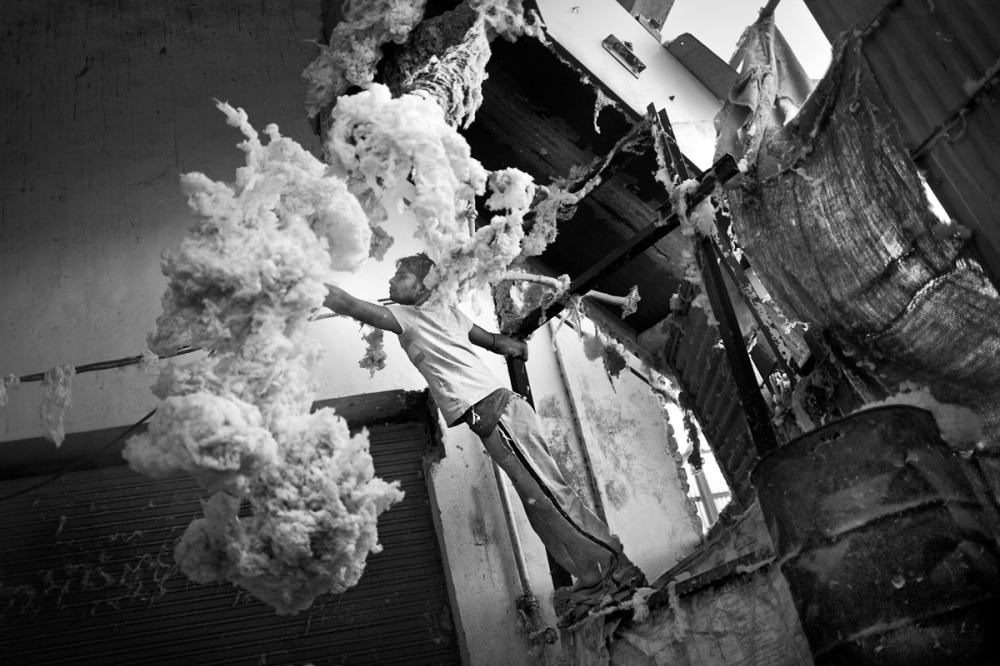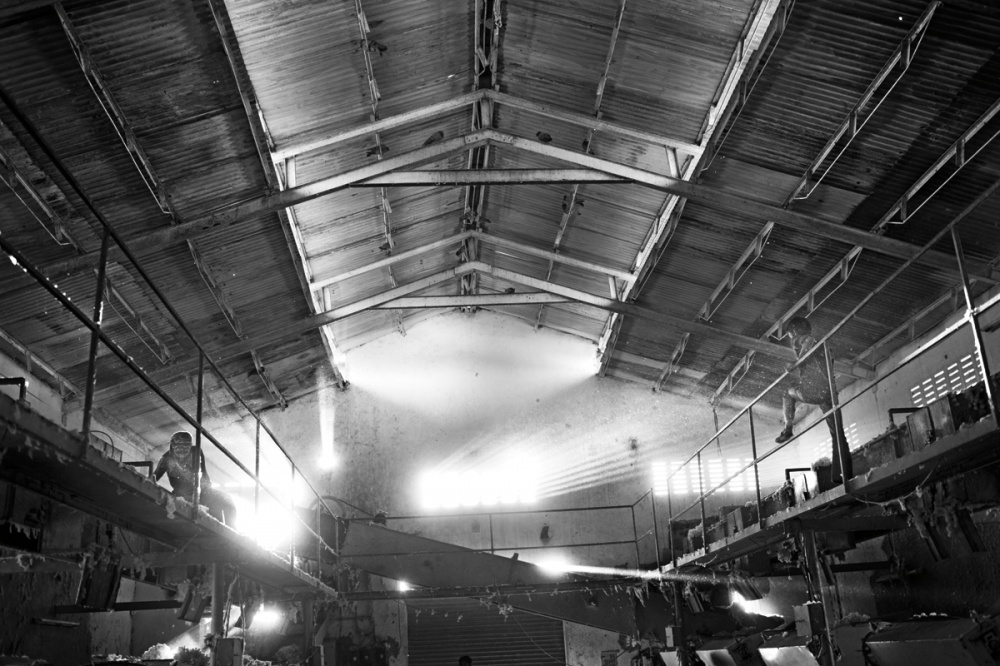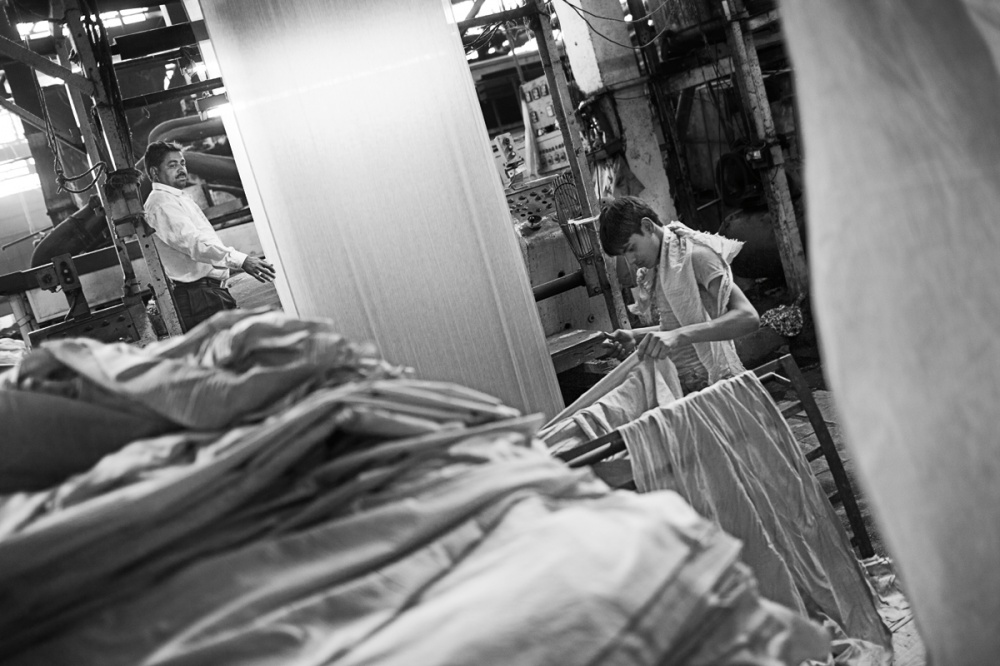Fashion victims – Other people’s clothes(2011-2012 India) Clothes make the man. But men and women who make the clothes for other people are often left behind. While India’s growing middle class is following trends, the greedy tiger is chewing its working class for the well being of the economic prosperity. For a long time Ahmedabad was known as the Manchester of the orient and still today the steam engines are running at the textile factories in the city at the Sabarmati River. The factories spit out fabrics which will be offered later on the world markets. Mahatma Gandhi once founded his ashram here. He sat at his spinning wheel and spread his ideas of a nation of equality, tolerance and non-violence. But today the Indian reality looks very different. Stories can be told about child slaves at cotton plantations in rural Gujarat, as well as stories about people who wash dirty clothes for the wealthy. Those stories are far away from fair-trade or from the glamorous Bollywood. A lot of workers work double shifts to enhance their salaries. Poverty makes them work under unacceptable conditions. A lot of them hardly see the sunlight. Long-term health damage caused by negligent handling of chemicals and colours or the dust that impairs from the work with cotton limit the lifespan of a lot of workers. Their lifespan lies below the Indian average already. But India is changing. The Indians say that India is developing. Slowly but surely. As long as corruption, bribery and greediness steer this development only little of the economic prosperity will get where it is needed most. It is unclear whom to blame, but surely we have to take the blame ourselves as it´s our ‚tight is right’ mentality that keeps the wages low.
Personal statement: My goal, by chosing to work on the project about the textile industry was to tell a story in compelling images about the globalization that directly affects us in our daily lives. Following the tradition of humanistic photojournalism, I feel strongly committed to Concerned photography and express my respect and empathy through this powerful medium. As good images take time and understanding, I like to work intensively on deeper-perspective projects to raise awareness and responsibility on specific social grievances. Being born and raised in the so called developped world, traveling expanded my horizon and raised my interest in stories with a dedicated social aspects. As I understand our world as a shrinking unit, with both, positive as well as negative consequences, I think a broader relevance of journalistic work derives from connections of microcosms within.
|
Florian Mí¼ller
Documentary Photographer
Fashion Victims
Public Project
Fashion Victims
2,999
























